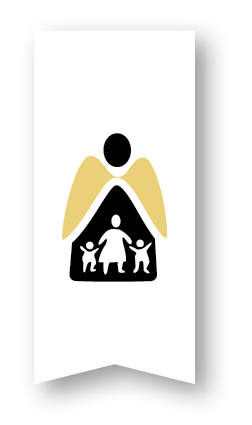
For many struggling mothers, financial concerns stand in the way of getting the support they need. Many programs require costly fees, insurance, or government aid, creating barriers that make assistance difficult to access. But what if there was a place where mothers and children could receive long-term support at essentially no cost?
That’s what Freedom House offers—a safe, stable residential program that completely free after admission*, with no insurance or payment required.
Free Support Without Financial Barriers
Many women hesitate to seek help because they assume they can’t afford it. Most shelters and programs require payments, insurance approvals, or strict financial qualifications. Freedom House is different. Upon being approved into the program, there is a one-time admission fee* (less than the cost of one-month’s rent in most studio apartments) but then in the year to follow, there are zero costs, no hidden fees, and no insurance requirements.
Whether a mother has lost her home, is escaping a difficult situation, or simply needs time to regain stability, Freedom House provides a secure place to start over—without financial stress.
More Than Shelter: A Foundation for Stability
Unlike temporary shelters, Freedom House offers long-term residency, allowing mothers and their children to stay for a year or more as they work toward a better future. This extended support ensures that families aren’t just given a place to sleep—they’re given the time and tools to rebuild their lives.
Program Benefits:
- Completely free after admission*
- Safe housing for mothers and children
- No insurance required—open to all in need
- Long-term support to help families establish stability
- Transportation assistance for appointments and job opportunities
- Life skills and guidance to build confidence and independence
- A 12-step model designed to support personal growth
Why Freedom House Stands Out
Finding a long-term, no-cost residential program is rare. Many assistance programs come with waiting lists, financial criteria, or complicated application processes that delay urgent help. Freedom House eliminates these obstacles, offering immediate access to a safe, supportive community.
Need Help? Freedom House is Here
If you or someone you know needs a free, long-term residential program that allows mothers and children to stay together, Freedom House is ready to help.
Once in the program, there are no additional fees, no insurance requirements—just a commitment to supporting families in crisis. Take the first step today, get more information and apply.
*note: prior to the program starting, there is an initial admission fee. This is a one-time, low-cost fee, less than the cost of one month’s rent in most studio apartments! If financial barriers are so severe that even this cost is a road-block, let us know!
Frequently Asked Questions (FAQ)
Is the Freedom House program really free?
Yes! Once a mother is accepted into the program, all services—including housing, customary basic needs (shampoo, toothpaste, etc), transportation assistance, life-skills training, and counseling—are completely free. There is only a one-time admission fee* required before the program begins. If you have specific questions about any personal items you might be responsible, feel free to reach out and ask!
What does the one-time admission fee cover?
The admission fee helps cover initial onboarding costs. It’s intentionally kept low—less than the cost of one month’s rent in most studio apartments. If this fee is a financial hardship, please contact us. We never want cost to be a reason someone can’t access help.
Do I need insurance to join the program?
No. Freedom House does not require health insurance or government assistance to participate. Our program is open to any mother in need, regardless of financial or insurance status.
Who is eligible to apply?
The program is designed for mothers who are in crisis, facing homelessness, or seeking long-term recovery support and stability for themselves and their children. Each applicant is considered individually, and we encourage anyone in need to reach out.
Can children stay with their mother during the program?
Yes. One of the most important aspects of Freedom House is that it keeps families together. Mothers live onsite with their children in a safe and supportive environment.
How long can mothers and children stay in the program?
Freedom House offers long-term residential care, with families typically staying for one year or longer. This extended time allows participants to heal, grow, and prepare for lasting independence.
What kind of support does the program offer?
Participants receive safe housing, transportation assistance, life-skills classes, parenting support, counseling, and access to a 12-step recovery model—all in a Christ-centered, community-focused setting.
Is this a place for a mother who needs to detox from an addiction?
Freedom House does not provide a detox program. Freedom House is not a medical facility and does not have a medical staff to ensure the safety of an individual going through detox. If a potential resident is currently addicted to or using substances, we do require them to complete a detox program prior to admission into Freedom House. Our staff will work closely with you throughout this process.
How do I apply or refer someone to the program?
Visit helpfreedomhouse.org for more information and to begin the application process. You can also contact us directly with any questions—we’re here to help.


